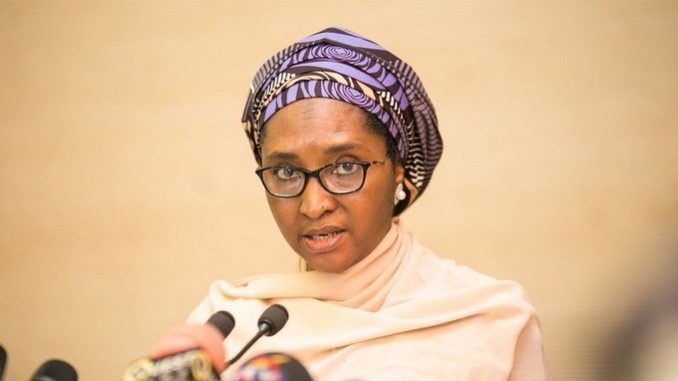By Tony Obiechina, Abuja
The Minister of Finance, Budget and National Planning, Mrs. Zainab Ahmed, has said that 2023 would be a watershed for Nigeria as the country embarks on two significant events, National elections and population census.
She spoke while briefing the Deputy Secretary General of the United Nations (UN), Mrs. Amina Mohammed, who visited her in Abuja on Tuesday.
In her opening remarks, Mrs. Ahmed listed some of the achievements of the government, stating that progress has been made in diversifying the Nigerian economy with non-oil export contributing close to 73%, adding that economically, the country is in healthy situation considering the position of the global economy.
The Minister noted that the country had witnessed two recessions during the President Buhari administration, “but we have been able to turn it around. The non-oil revenue share of funding the federal government is growing and contributing significantly, and that is what is really holding the economy now”.
According to her, given that President Buhari has issued a proclamation authorising a national census to be conducted, the country will need both technical and logistics support from the UN and other agencies which are saddled with such responsibilities.
“It will be very tasking on the federal government budget. Next year, we have elections and census that are very expensive, so we really do need these interventions to help us navigate the those two big challenges,” Ahmed said.
She however, commended the United Nations Population Fund (UNFPA) for what it is doing with the National Population Commission (NPC), pointing out that UNFPA has embedded a special adviser that is working with the population commission.
The Minister while briefing the Deputy Secretary General on Nigeria’s effort towards keeping its head above board, said that global rating agencies were insensitive to current global challenges and peculiarities of Nigeria and other developing nations in their recent downgrades of the country.
According to her, despite all the cooperation extended to the rating agencies like Fitch, Moody’s, Standard and Poor’s (S&P), the rating agencies were not considerate in their assessment of the circumstances Nigeria and similar countries were operating in.
In her words: “We are coping with a lot and we are doing the best we can under very difficult circumstances. But to have to cope with credit rating agencies working as if nothing has changed, not realising the kind of shocks we are suffering and coping with, and assessing us and downgrading us for factors external to us even when we are putting our best efforts, we think it is a situation we realise we can not change.
“In this ministry, we engage every credit rating agency and provide everything it asks for. But it seems as if it is not enough. There has to be some support that we need to get.
“They themselves need to do things differently. You cannot be making the same kind of assessments they were making some time ago. Things are different.
“Things are not going well for many countries. We have seen some of our sister countries really hurt.”
The Minister called on the UN and other international bodies to save developing countries like Nigeria from the clutches of rating agencies, noting that unless there are interventions at a very high international level, countries that are developing will be the ones that would carry the brunt of this attitude of the credit rating agencies.
In her brief remarks, Mrs. Mohammed cautioned the federal government on the planned review of fuel subsidy.
“Review of fuel subsidies is hugely important to the economy. However, it has to be handled with care, targeting effectively what one believes is important,” Mohammed said.
She noted that it is also important “for people to understand that those perceived gains from subsidy are actually going to translate into their lives towards reducing poverty, ensuring jobs for our women and youths.”

